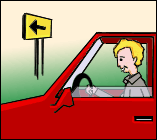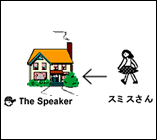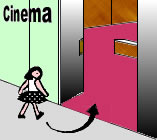| The following are verbs that take a destination but no direct object. | |||
go |
come |
return (home) |
enter |
| Typical Destinations | ||
school |
house/home |
library |
office |
movie theater |
bath(tub) (おふろに はいります: to bathe) |
|
||||
|



